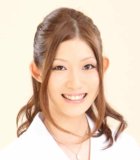Dietary Minerals
By Lisa Sakano.
Lisa has put together this chart of dietary minerals and the food sources that contain good amounts of the nutrients. Japanese Healthy Eating recommends that people focus on a healthy diet of healthy foods to get adequate doses of vitamins and minerals. This is mainly because the body absorbs vitamins and minerals from foods much more than from supplements.
Loading
Mineral Mineral Benefits Prevents Conditions Food Sources Calcium Strong bones, teeth, nerves and the regulation of muscles Osteoporosis, lower cranial nerve malfunction Yogurt, sardines, sesame seeds, goat`s milk, spinach, collard greens, cheese, blackstrap molasses Chromium Enhances the action of insulin - a hormone which helps metabolize carbohydrates, fats and protein Diabetes, Elevated cholesterol Broccoli, grapes, oranges, beef, potatoes, whole wheat bread, garlic Cobalt Works with vitamin B12 for the function of enzymes and red blood cell production Deficiency in cobalt may lead to a deficiency in vitamin B12 leading to pernicious anemia and nervous system disorders. Green leafy vegetables, meat, milk, oysters, clams Copper Works with iron to make red blood cells & is the major component of the outer coating of nerve fibers and collagen. High blood pressure, heart arrhythmia, oxidation of cells and cholesterol Sesame seeds, cashew nuts, soybeans, garbanzo beans, navy beans Fluorine (Fluoride ) Stronger tooth enamel and bones, higher birth weights and higher rates of growth in children Less cavities, less bone fractures, osteoporosis in older women Carrots, turnip, sunflower seeds, garlic, spinach, green leafy vegetables Iodine Essential in maintaining thyroid & parathyroid gland function, improves mental alacrity, promotes hair, nails, skin, teeth Anemia, Intellectual disability, Poor growth. Low level radiation poisoning Iodized salt, seafood, saltwater fish, kelp, miso soup, Japanese pickled plums, seaweed Iron Supplies energy to every cell in the body, key component of hemoglobin, helps supply oxygen to muscles, supports immune system. Tiredness, Anemia, Decreased immunity Thyme (herb), liver, clams, oysters, mussels, pumpkin seeds, sesame seeds, sun dried tomatoes, sunflower seeds, apricots, caviar Manganese Aids your body utilize key nutrients, strong bones, maintain normal blood sugar levels, healthy nerve function Diabetes, Decreased energy, Digestive disorders Pineapple, brown rice, garbanzo beans, spinach, soybeans, oats, tempeh Magnesium Relax nerves & muscles, build strong bones, smooth blood circulation Muscle weakness/spasm, Heart Arrhythmia, Imbalanced blood sugar levels, Elevated blood pressure Pumpkin seeds, spinach, soybeans, salmon, sesame seeds, halibut, black beans, navy beans Potassium Aids in muscle & nerve function Muscle weakness, High blood pressure, Hypoglycemia Swiss chard, lima beans, winter squash, soybeans, avocado, spinach, papaya, lentils Selenium Anti-oxidation, enables thyroid to produce thyroid hormone Premature aging, joint inflammation, cancer Brazil nuts, button mushrooms, shitake mushrooms, cod, shrimp, tuna, halibut, salmon Silicon (Silica ) Healthy skin, teeth, bone, & hair Hair loss, Wrinkles, Brittle nails Whole grains, vegetables, applies, bananas, oats. lentils, peanuts, almonds, beer, coffee Sodium Regulates blood pressure & volume, critical for muscle & nerve function Hypotension, Fatigue *Moderate intake of sodium is suggested. (About 1 teaspoon/day for healthy adults)Table salt, milk. beets, celery, drinking water Sulfur Synthesis of amino acids, formation of hair, nails, cartilage & tissue, healthy nervous system Alopecia, Eczema, Spots Dried beans, cabbage, clams, eggs, fish, garlic, legumes, meat, milk, onions, chicken, wheat germ Zinc Proper immune function, digestion, control of diabetes, weight loss, acne prevention Poor growth, Reduced energy, Impaired sense of smell taste Meat, oysters, turnips, peas, oats, peanuts, almonds, whole wheat, pumpkin seeds, ginger root
Healthy Eating Guide & Vitamin and Mineral Information
Japanese style healthy eating is rich in vitamins and dietary minerals. Include as much Japanese food into your daily life as possible in order to reap the benefits.
Return from Dietary Minerals to Facts About Vitamins
Return from Dietary Minerals to Japanese Healthy Eating






